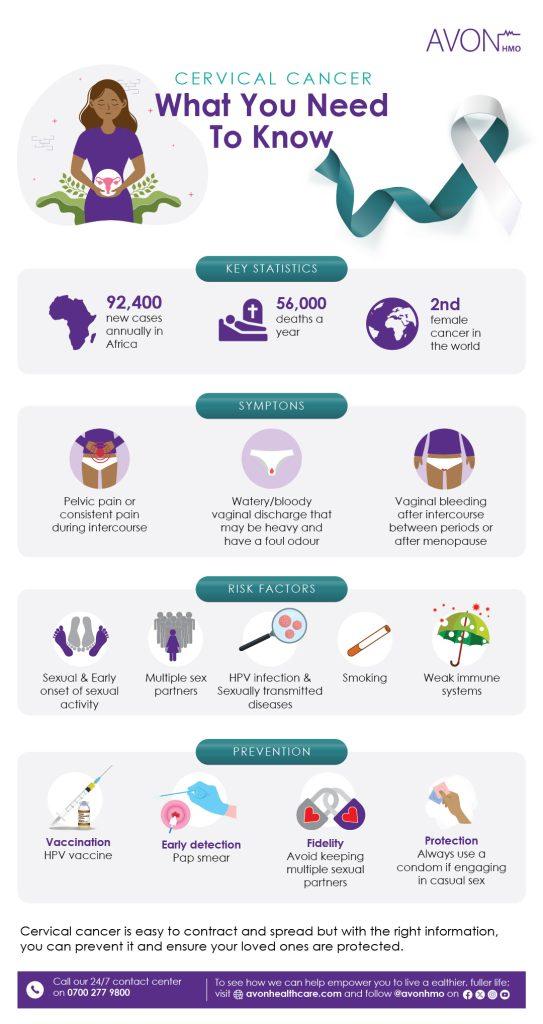How to prevent Cervical Cancer
Did you know that cervical cancer is the second most common cancer among Nigerian women, with over 14,000 cases reported every year? The reason behind this alarming statistic is the ease with which it can be contracted from various sources. What’s even more concerning is that many individuals who have unknowingly contracted the human papillomavirus (HPV), which is responsible for cervical cancer, end up spreading it to others. It’s important to stay informed about this issue, so here’s what you need to know.

We strongly believe that raising awareness about cervical cancer and educating people on how to prevent and treat it is crucial for everyone’s safety. By spreading knowledge, we can work towards reducing the number of cancer cases in the world. This informative article aims to provide you with all the necessary information about cervical cancer, including its symptoms, prevention methods, and treatment options.
- How is cervical cancer contracted?
Cervical cancer is a type of cancer that develops in the cells of the cervix, which is the lower part of the uterus connecting to the vagina. The main cause of cervical cancer is the human papillomavirus (HPV), specifically various strains of it. When a woman becomes infected with HPV, her immune system usually fights off the virus. However, in some cases, the virus can persist for years and lead to the development of cancerous cells on the surface of the cervix. - What are the risk factors?
Several factors increase the risk of developing cervical cancer, including:
- Engaging in sexual activity with multiple partners, as it raises the risk.
- Initiating sexual activity at an early age.
- Contracting other sexually transmitted infections (STIs).
- Having a weakened immune system.
- Smoking.
3. What are the symptoms of cervical cancer?
In the early stages, cervical cancer may not exhibit any symptoms. However, as the disease progresses, the following signs may appear:
- Vaginal bleeding after intercourse, between periods, or after menopause.
- Pelvic pain.
- Watery, bloody vaginal discharge with a possible foul odor.
If you experience any of these symptoms, it is crucial to consult a doctor immediately, as early detection significantly increases the chances of successful treatment.
4. How can you prevent cervical cancer?
Taking preventive measures can help reduce the risk of developing cervical cancer. These include:
- Getting vaccinated against HPV.
- Undergoing regular screening tests, such as Pap tests, to detect any precancerous conditions on the cervix.
- Practicing safe sex by using condoms or maintaining a monogamous relationship, as multiple sexual partners increase the risk.
- Avoiding smoking.
5. Cervical cancer treatment options include surgery, such as a hysterectomy, which is effective when detected early. However, it’s important to consider the potential impact on childbirth. Another approach to eliminate cancer cells is through radiation therapy and chemotherapy. It’s crucial to stay informed about cervical cancer to prevent its contraction and spread, ensuring the safety and protection of yourself and your loved ones.
By following these preventive measures and staying informed, you can take proactive steps towards safeguarding your health and reducing the impact of cervical cancer. SOURCE: Avon HMO




